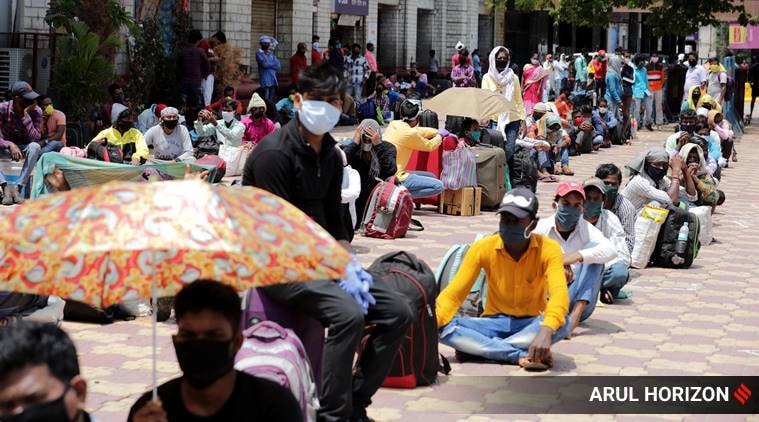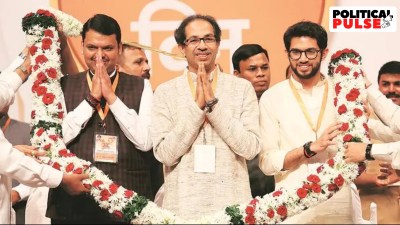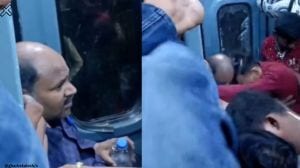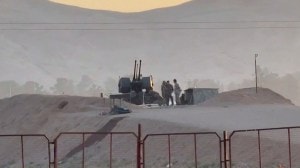- India
- International
Mumbai: For migrants who didn’t leave, charity remains a key lifeline
Among the migrant workers left behind in the Vasai-Naigaon-Virar-Boisar belt on the outskirts of Mumbai are facing widespread job loss, depletion of savings and rising dependence on charity for access to food.
 With public distribution system shops still unable to provide groceries to many without ration cards, thousands of families in these areas continue to be served by charitable organisations working in coordination with UNICEF Mumbai. (Representational)
With public distribution system shops still unable to provide groceries to many without ration cards, thousands of families in these areas continue to be served by charitable organisations working in coordination with UNICEF Mumbai. (Representational)
More than three months since the imposition of a national lockdown and despite the state’s attempts to restart economic activities, the hunger and unemployment curves have not flattened in Mumbai’s far-flung suburbs that have reported a fresh spurt of Covid-19 cases since last week.
Home to lakhs of migrant workers who left for their home districts in April and May, those left behind in the Vasai-Naigaon-Virar-Boisar belt on the outskirts of Mumbai are facing widespread job loss, depletion of savings and rising dependence on charity for access to food.
Urmila Prajapati of Allahabad in Uttar Pradesh, who operated a food stall on the highway outside her home in the Palna Pada slum of Vasai, said the gradual re-opening had not brought customers back.
Urmila Pal, whose husband is an autorickshaw driver, used to take tuitions at home for primary school students to earn Rs 2,500 a month. “Now, neither can parents in these slums afford a tuition teacher nor do they want to send their children to somebody’s home,” Pal, also a native of Allahabad, said.
Autorickshaw driver Pramod Prajapati, who left Azamgarh in UP nearly 15 years ago, said groceries at his home are almost entirely provided by charitable groups. In Palna Pada, the mostly migrant population stayed back after failed attempts to board a Shramik Special train.

With public distribution system shops still unable to provide groceries to many without ration cards, thousands of families in these areas continue to be served by charitable organisations working in coordination with UNICEF Mumbai.
When workers began their long walk home in April, this network of organisations began to map major transit points, including Vasai, Virar, Thane, Palghar and Nashik. With help from organisations along the routes to Uttar Pradesh, Odisha and Bihar among others, they provided food, water and footwear to the migrants.
“Since June 7 or 8, there have been no more Shramik trains, and we found that those who stayed back are continuing to face a serious food crisis. We then began conditional cash transfers for rations, medicines. Just yesterday, we helped a pregnant woman get to a hospital and give birth,” said UNICEF Maharashtra’s Water, Sanitation and Health (WASH) specialist Yusuf Kabir.
Originally a WhatsApp group of 20, the Covid-19 PECONet (Partners, Enterprises, Citizens and Ownership) is now a network of 55 organisations, volunteers, corporates, government agencies and civil society organisations. For two months now, they have collected and distributed non-perishable food, water, sanitary napkins and basic medical support.
‘Jeevan Rath’, their mobile mini-truck, continues to provide food items like theplas, sheera, chana, peanuts, bananas and oranges to communities in Vasai-Virar, Mira Bhayander, Dahisar, Vasai-Palghar and Virar, apart from some locations in Mumbai city.
By the end of May, Jeevan Rath 2.0 and Phase II of the PECONet collective were trying to continue to support migrant clusters in the Mumbai region and in their home districts. Between May 29 and June 23, the group reached 40,421 people through its helpline, providing rations, helping them return to their home districts through buses and even a chartered flight.
In Vasai and Naigaon, Devendra Jena and his team of volunteers continue to provide cooked food through a community kitchen, groceries, medicines and even financial assistance for things such as phone recharge for hundreds of mostly migrant families who are out of work.
“This is not like a tsunami or an earthquake that we know exactly what relief is required. We provided grocery kits to more than 5,000 families in Vasai, Virar, Naigaon and as far as the Vaitarna area. People are still in acute need of help – the situation has not improved,” Jena said.
Along with Vasai-based organisations Jan Kalyan Samiti, Rashtriya Jagruti Mandal and Wings Foundation, Jena’s team continues to reach out to diverse communities – tribal hamlets in Palghar district, a large transgender community of 50 to 60 members in Nallasopara, slums of migrant residents in Naigaon, young professionals who lost jobs or have other needs, including access to mental health professionals, and more, all coordinated by PECONet.
In Palna Pada, Shankar Malaviya from Pali in Rajasthan is a skilled carpenter with no work and no savings. The civil contractor he worked with has left Mumbai, and skilled carpentry may now find takers only in Mumbai city, which he cannot reach until the local trains resume. “The opening up has not helped skilled artisans, auto drivers and vendors, who all depend on the trains,” Malaviya said. “We’re surviving here only because of people’s help.”
Apr 20: Latest News
- 01
- 02
- 03
- 04
- 05






































